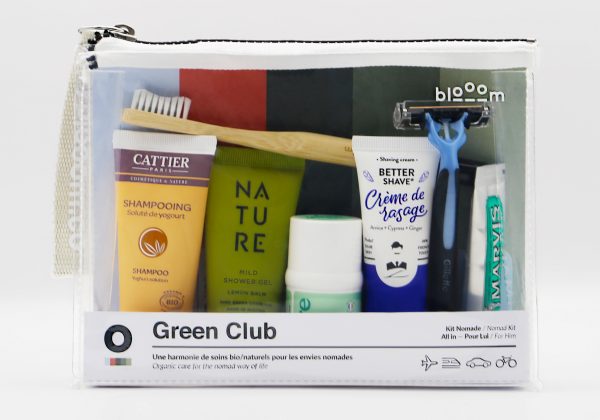





The imbroglio surrounding the privatisation of ADP has brought to light a market segment that was mischievously showing off to everyone, while knowing that no one was really seeing it: airport commerce. We hear everywhere about the cash machine, the windfall, the hidden treasure: 1 billion euros of the 4.5 billion turnover generated by ADP in 2018 came from shops (500 million euros) and services. Moreover, the launch of a remarkable entrepreneurial venture called Blooom (self-marketing and product placement allowed) reminds us that this is not only an ” old man’s ” market but a real growth area, a formidable playground at the crossroads, which attracts young entrepreneurs ready to do anything (even write lousy articles?) to try their luck (as long as they are given the chance…)
Over 4.3 billion passengers flew in 2018. That’s 6% growth compared to 2017, 6% is small ? no way, it means more than 250 million additional passengers, enough to fill my entire studio. The crystal balls of the aviation Ayatollahs are betting on a doubling of (air) traffic by 2037. Of course, the same things will be said over and over again for all growth, everything will happen in Asia (China and India) and then in Africa (insolent birth rate and under-exploitation of human and natural potential). Nevertheless, Europe is the most significant market with 37% of revenues per passenger kilometre (RPK).
Interesting to know why the airlines are doing so well.
The business world is doing well. The global crisis has not necessarily hurt the globalized nomadic class, or at least not by much. We travel to meet an Asian supplier, to have a management meeting in New York, to visit a factory that doesn’t pay anything. There’s nothing better than a good handshake and a good scuffle to get things done. In a globalised economy, meeting each other means moving, moving takes time, we take the plane because in general it is much faster, more efficient.
Flying is also about having fun, we travel more and more for leisure. Because we are earning more?
For some people yes, for many others it”s because it”s getting cheaper, much cheaper (I once took a ticket for less than 30€ well I missed the plane but the idea is there…).
Cheaper to go, but more importantly cheaper to be there! Thank you Airbnb and thank you Low Cost. 30% of flights worldwide are low cost, 36% are in Europe. Too bad for the planes with more and more contiguous seats, the check-in of luggage to keep liquid products charged (fortunately Blooom exists).
Technological progress is also a big part of it, no need to bring up Moore’s laws and the impact on the cost of electronics and its miniaturisation on aircraft. Fuselage components are more resistant, lighter and more efficient. It doesn’t look like it, but engines are evolving a lot, in terms of power but also fuel consumption (the less an engine consumes, the cheaper it is to make people fly). So cheaper tickets. So more people are flying.
Moreover, travelling has become as commonplace as taking a holiday. It has become normal to travel, to change one’s mind, to discover new places, and more and more frequently. Travelling has become a matter of course, something that was unimaginable on this scale 60 years ago. In French airports, for example, half of all air travel is related to holidays (28% for business reasons and 22% for private reasons according to the national survey of air passengers conducted in 2016).
Will this mean that traffic will double in 15 years’ time?
Answer from a Norman or a consultant: it depends, it’s not so obvious.
We can see the beginnings of an ecological grumbling and condemnations of polluting aircraft (not necessarily always rightly so…). Will the phenomenon become more widespread? Only history has the secret of its coups d’éclats, in any case a real battle to orientate the crowds is starting, with the help of com’ operations sometimes ignoring the truth, as is often the case. The electric plane is a solution, perhaps, but not for 2036. The main technology ‘chosen’ is lithium-ion, whose energy density today does not allow commercial planes to take off and fly under the same conditions as today.
Also the uncertain geopolitical context (Latin America, Middle East) and its impact on oil prices plays an important role on ticket prices and could in the coming years significantly impact world traffic.
Flying cars could change the face of average mobility. Let’s see what Airbus’ test for the 2024 Paris Olympics will look like. The Federal Aviation Administration has approved the Transition flying car designed by Volvo and Terrafugia (which reaches 600km/h in the air, soon red lights in the air?).
The evolution of information and communication technologies with the democratisation of technologies such as the hologram or virtual reality allowing to “live” a meeting with speakers from the four corners of the world could question the ROI of physical travel compared to a 4.0 meeting.
Also, the chimeras of nationalism and grumbling against an overly globalised economy that is moving at a rapid pace and leaving many on the sidelines could curb the appeal of the airline by ricochet.
Another limit, this time intrinsic to the industry, is the capacity to take on all these people. The major challenge is around airport infrastructure (not only reception areas but also acceleration of processes with automation of controls and Blooom to pass them quickly).
Also the recruitment of pilots, a resource that is becoming increasingly rare. The idea of a single-pilot or even pilotless aircraft is already being hinted at, in order to plant the seed in our heads and get support in a few years’ time, and why not?
As in all history, as soon as there is a place with a lot of traffic, a lot of waiting, trade zones flourish around it. Samarkandas have grown, are growing and will grow in all airports, offering the most basic services (eating, peeing/pooping, sitting, charging your phone now is basic) and those that have accompanied the sophistication of the world (electronic sales, clothing, tobacco, alcohol, beauty). Small self-sufficient shopping towns were created and gave rise to the lush Travel Retail better known as Duty-Free with ‘cheap’ cartons of cigarettes and bottles of alcohol.
Nous utilisons des cookies quand on a un petit creux mais aussi sur ce site pour améliorer votre expérience, réaliser des statistiques d’audience, vous proposer des services adaptés et des fonctionnalités relatives aux réseaux sociaux. Wow trop bien !
Cliquez sur “Accepter” ou continuez votre navigation pour donner votre consentement et profiter d’une expérience personnalisée. Politique de données, Recette Cookies